Sarbjit Johal
- October 8, 2025
- Posted by: kevbha
- Category: News
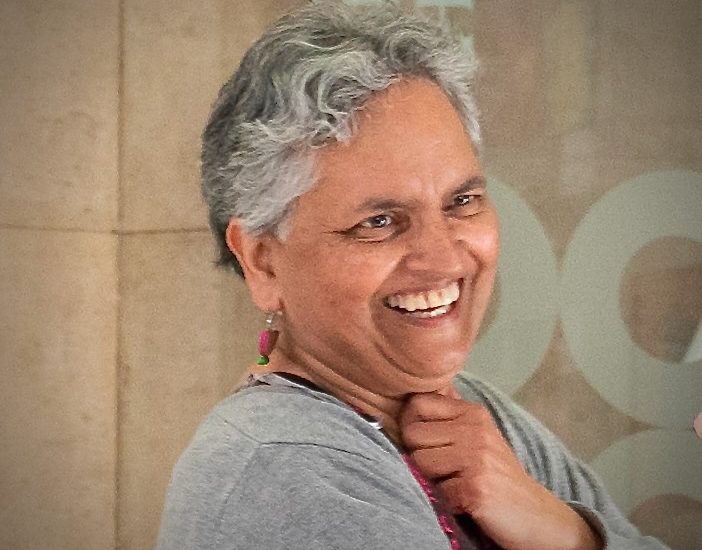
It is hard to believe that a year has passed since the heartbreaking loss of our beloved friend and comrade Sarbjit Johal, who passed away peacefully on the morning of Wednesday 9th October 2024 at the age of 62, after a long battle with cancer. During this year marked by the horrifying escalation of the genocide in Gaza and the creation of a colonial famine by ‘Israel’, the rapid growth of the far-right in Britain facilitated by the Starmer government and the accompanying massive increase in racist attacks, and the intensification of ethnic cleansing of Muslims under the Brahminical Hindu supremacist Modi regime in India and the deepening of repression in occupied Kashmir, among many other ongoing struggles, there has rarely been a moment when we have not missed Sarbjit’s presence or been reminded of what she would have said or done. We are sharing here a short piece about Sarbjit written over the course of this first year without her.
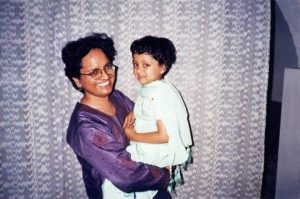
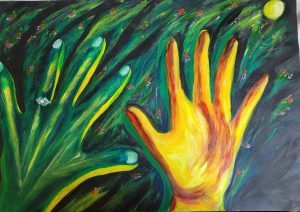

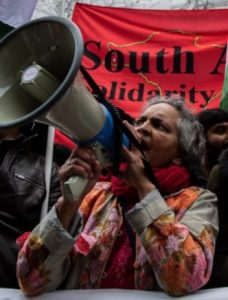

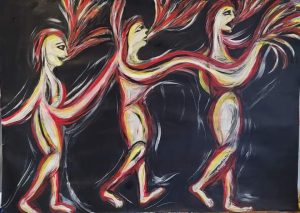

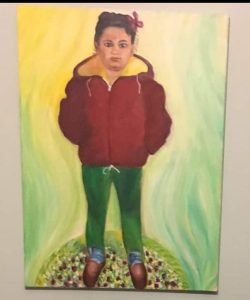
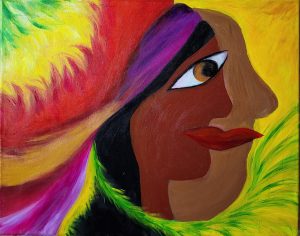

Sarbjit’s boundless energy, creativity, warmth, sense of fun and passion for justice touched so many people throughout her life, which she always lived to the full.
Sarbjit was an activist, artist and teacher, and mother to her beloved daughter Chandni. She was a founder member of South Asia Solidarity Group, played a key role in the Burnsalls strike, the Hillingdon Hospital workers’ dispute, and campaigns for justice for domestic workers, and was deeply loved and respected in a wide range of overlapping circles including anti-communal, anti-caste South Asian diaspora activists, feminist and queer women of colour, workers’ and trade union movements, and many others.
Sarbjit was born in 1962 in Punjab, India. She came to Britain at the age of eight and lived much of her early life in Southall, during which time her father worked for London Transport on the buses and her mother in factories and later as a hospital cleaner. She wrote the following in an introduction to an exhibition of her paintings held in The Dominion Centre, Southall:‘Some of my earliest memories are of being taken by bus from Featherstone Road, out of Southall and all the way to Wood End Juniors in Northolt. This was under the notorious racist ‘bussing’ system imposed on Asian children in Southall and other places….I remember my friend telling me how awfully her mum was treated at the Wall’s factory…I have memories of my dad working on the 207 bus and how proud I felt when in one of the school holidays he took me with him, and I sat in the bus while he gave bus tickets. Later I remember the sweets with almonds my mum used to bring home after working at the Nestle sweet factory in Hayes…The racist 1981 Nationality Act restricted the right to British citizenship for many people of colour living here. I remember that day (of the protest against the Act) as I so much wanted to go, but knew I wouldn’t be allowed. Instead my English boyfriend went, and told me how huge it was….I remember the weekends spent watching TV at home while dreaming of all the things I would do if I had the freedom I wanted…’
These experiences of racism, patriarchy and workers’ struggles early in her life shaped Sarbjit as a passionate feminist, a lifelong anti-racist activist and an organiser for workers’ rights. After leaving home at the age of 16, determined to pursue further studies rather than succumbing to pressure to get married, Sarbjit studied Sociology with a Social Policy option at Preston, and after returning to London in the early 1980s, she trained as a secondary school teacher. She had a deep empathy with young people, and as anyone who attended one of many workshops she organised will remember, she was an innovative and inspirational teacher.
Around 1992, long before the prison abolition movement took root in Britain, Sarbjit was advocating for an end to incarceration. She supported individual prisoners and also started a bulletin called Andar ki Larai or The Struggle from Inside which was about the struggle against racism in prisons. A public meeting which she organised with South Asia Solidarity Group and also a large number of other organisations from the Free Zoora Shah Campaign and Free Satpal Ram Campaign to the Howard League for penal reform demonstrated the wide reach of Andar Ki Larai. A key speaker was Biba Sarkaria who had just been released from Cookhamwood Prison after ‘ten years of fighting for prisoners rights and against racism in prison’.
With the rise of Hindutva fascism Sarbjit worked passionately with SASG pouring her energies into confronting Brahminical patriarchy, casteism and Islamophobia. She saw the struggle against caste oppression as of central importance and worked closely with Caste Watch UK, pouring her energies into campaigning for a law to end caste discrimination in Britain and often speaking on Kanshi TV.
Sarbjit’s creativity always translated into artistic activist projects. She painted countless vibrant banners and placards over the years, and was the driving force behind many skits and actions performed by South Asia Solidarity Group, from designing masks of Narendra Modi and Gautam Adani to coordinating volunteers to drop a banner reading ‘Resign Modi’ from Westminster Bridge at 6am on Indian Independence Day 2021. Sarbjit’s voice was always the loudest at every protest, and she was constantly recruiting and organising new people and bringing creative energy to events and actions.
Sarbjit was a long term friend and supporter of the Communist Party of India, Marxist-Leninist (CPIML) and attended many of the Party’s Congresses, including the most recent Congress in Patna, Bihar in February 2023.
Alongside and intertwined with her activism, Sarbjit started painting in the 2000s and emerged as a talented artist. Many of her paintings portrayed movements and struggles in Britain, India and elsewhere, particularly those of women, and resistance to patriarchy in the family, while others portrayed her friends and family, and later she also painted a series of abstracts. A major exhibition of her work was held at Manchester Central Library in early 2022, incidentally coinciding with Sarbjit’s 60th birthday. She was also committed to sharing her skills and ideas, seeing art as open to everyone, and ran a series of art workshops to Asian women’s organisations across the country.
Rest in Power, dearest Sarbjit. You will live in our hearts forever.


